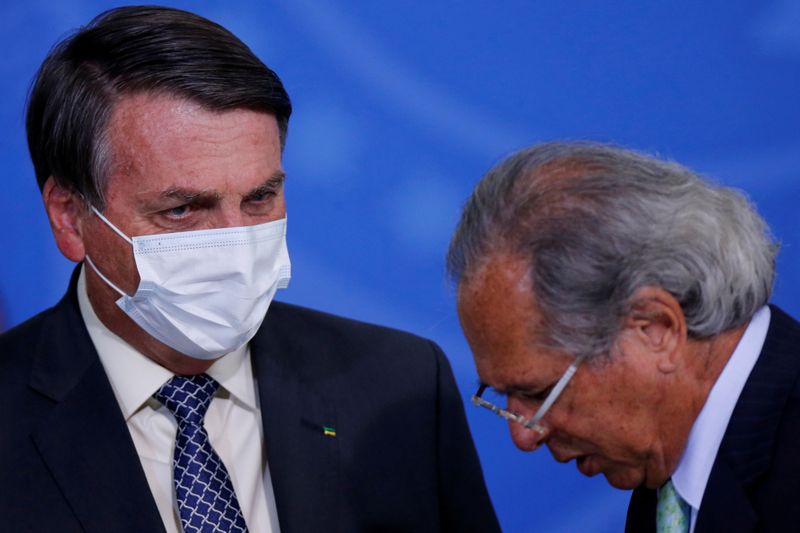BRASILIA (Reuters) – Brazil’s government is on course to post a primary budget deficit of 861 billion reais ($157 billion) this year, the Economy Ministry said in its bimonthly revenue and expenditure report on Tuesday, factoring in extended emergency transfers to the poor through the end of December.
That is wider than the 787.4 billion reais deficit excluding interest payments that was forecast in the last report in July, but slightly below the ministry’s official forecast of a 866.4 billion reais shortfall issued earlier this month.
The ministry and Treasury insist emergency spending and support to cushion the economic shock of the COVID-19 pandemic must be confined to this year, and a concerted effort to reduce its record deficit and debt load will start on Jan. 1.
The report outlined an expected 84.4 billion reais rise in “extraordinary credits,” which include an extra 67.6 billion reais of emergency payments over the October-December period recently approved by President Jair Bolsonaro.
Those payments, which have helped prevent an even steeper economic downturn and boosted Bolsonaro’s approval ratings, will be paid at 300 reais a month, half the April-September rate.
Overall, the Economy Ministry raised its 2020 primary expenditure forecast by 63.6 billion reais from July’s report to 2.046 trillion reais, and lowered its net revenue forecast by 10 billion reais to 1.185 trillion reais.
The estimates were based on the government’s official economic projection of a 4.7% contraction in gross domestic product this year, which would be a record annual decline but not as severe as many feared earlier this year.
Treasury Secretary Bruno Funchal told Reuters on Monday that Brazil’s weak fiscal situation was the main reason behind the recent spike in long-term interest rates, and that policymakers had “no room for error” in bringing the public accounts back to health next year.
(Reporting by Jamie McGeever; Editing by Chris Reese and Peter Cooney)



















